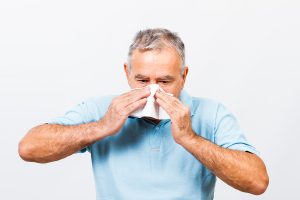Senior Care Bronx NY
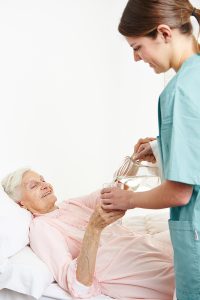 As a family caregiver one of the most important care efforts that you put forth for your senior parent is understanding the health risks that your aging parent faces so that you can take the proper step to reduce those risks and keep them healthier as they age in place. During the fall and winter season you know that the risk for cold and flu is elevated, but for a senior adult, the risk goes further. Approximately 2 million people each year, the majority of them elderly adults, develop pneumonia. This often comes as a result of other infections and illnesses, such as the flu or a cold. This condition develops rapidly and can result in death if not handled properly. By understanding the risk factors you can help your parent reduce the chances that they will experience this serious lung infection.
As a family caregiver one of the most important care efforts that you put forth for your senior parent is understanding the health risks that your aging parent faces so that you can take the proper step to reduce those risks and keep them healthier as they age in place. During the fall and winter season you know that the risk for cold and flu is elevated, but for a senior adult, the risk goes further. Approximately 2 million people each year, the majority of them elderly adults, develop pneumonia. This often comes as a result of other infections and illnesses, such as the flu or a cold. This condition develops rapidly and can result in death if not handled properly. By understanding the risk factors you can help your parent reduce the chances that they will experience this serious lung infection.
Some of the risk factors for pneumonia include:
• Smoking cigarettes, cigars, or pipes
• Experiencing a recent cold
• Experiencing a recent flu
• History of laryngitis
• Health complications or challenges that make it difficult for your parent to swallow, this can include dementia, a stroke, or Parkinson’s disease
• Presence of an existing lung problem or infection, such as COPD
• Cerebral palsy
• Heart disease
• Diabetes
• Liver cirrhosis
• Recently spending time in a treatment facility with many other people, such as a hospitalization due to a recent illness or infection
• Recently having undergone surgery
• Recently suffering an injury or other trauma
• Weakened or suppressed immune system such as due to certain medications and treatments, illnesses, HIV, or other autoimmune conditions
Talk to your senior parent’s doctor about your aging loved one’s health and if there are any specific issues that might increase their risk of pneumonia. This allows the doctor to give you recommendations for how you can better protect your parent from this illness and its potentially devastating consequences. This is especially important if they have recently suffered an illness or extended stay in the hospital or a treatment facility and have been showing symptoms that concern you, such as high fever or cough that has not gotten better.
If you are concerned about your senior parent’s health, especially during the fall and winter seasons, starting senior care for them might be the ideal solution. A senior home care services provider can offer your aging parent a highly personalized set of services tailored to their individual needs, challenges, and limitations, as well as their personality, beliefs, and lifestyle. Through this customized approach to care, support, encouragement, and assistance this care provider can help your parent manage their condition, get through their recovery in the most effective way possible, stay healthier and safer, and avoid future infections and illnesses.
When it comes to helping your parent manage their risk factors for pneumonia, this senior care provider can help your parent understand their risks, take proper steps to reduce these risks, and make choices that will support a healthier, more resilient body. With a continued care relationship, your parent can enjoy a lifestyle that is more active, engaged, and independent for a healthier, happier, and higher quality of life.
Source: https://www.lung.org/lung-health-and-diseases/lung-disease-lookup/pneumonia/symptoms-causes-and-risk.html?referrer=https://www.google.com/


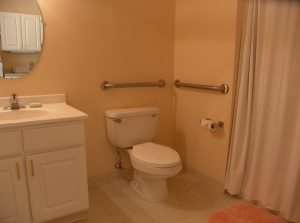 As a family caregiver for an elderly adult who is dealing with Parkinson’s disease, you know the importance of safety. This progressive condition can cause a wide variety of symptoms that interfere with your parent’s functioning and can put them at risk of injuries, including loss of balance, impaired gait, freezing, tremors, rigidity, weakness, and more. Going through their home and identifying potential risks and dangers enables you to make meaningful modifications that allow your parent to age in place safely, comfortably, and healthily as they progress through this disease. One area where this is particularly important is the bathroom.
As a family caregiver for an elderly adult who is dealing with Parkinson’s disease, you know the importance of safety. This progressive condition can cause a wide variety of symptoms that interfere with your parent’s functioning and can put them at risk of injuries, including loss of balance, impaired gait, freezing, tremors, rigidity, weakness, and more. Going through their home and identifying potential risks and dangers enables you to make meaningful modifications that allow your parent to age in place safely, comfortably, and healthily as they progress through this disease. One area where this is particularly important is the bathroom.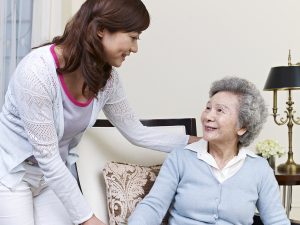 Unless you have ever cared for an aging parent, it can be challenging to know what your responsibilities will be. Every situation is different, but most family caregivers will feel overwhelmed over their endless list of duties. The best thing you can do is be prepared for what is to come.
Unless you have ever cared for an aging parent, it can be challenging to know what your responsibilities will be. Every situation is different, but most family caregivers will feel overwhelmed over their endless list of duties. The best thing you can do is be prepared for what is to come. Often elderly loved ones are intimidated and defensive about any type of conversation that could lead to having their car keys taken away. Once you understand that the fear is mostly about losing independence, it's easier to make an effort to help your loved one keep driving if she's able to do so.
Often elderly loved ones are intimidated and defensive about any type of conversation that could lead to having their car keys taken away. Once you understand that the fear is mostly about losing independence, it's easier to make an effort to help your loved one keep driving if she's able to do so. Your physical health is vital to making sure that you can keep going as a family caregiver. If you're ignoring your own health, it's time for you to make some changes.
Your physical health is vital to making sure that you can keep going as a family caregiver. If you're ignoring your own health, it's time for you to make some changes. Being a family caregiver for an elderly adult who is going through Alzheimer’s disease can be an extremely challenging journey. You are faced with the reality that your parent’s needs and care can and will change, and that sometimes these changes will be unexpected and sudden. As you are managing these needs and trying to prepare yourself for the future of their changes, you must focus your attention on keeping your parent healthy and safe, and creating the highest quality of life possible for your senior. Part of this is helping them to maintain their independence.
Being a family caregiver for an elderly adult who is going through Alzheimer’s disease can be an extremely challenging journey. You are faced with the reality that your parent’s needs and care can and will change, and that sometimes these changes will be unexpected and sudden. As you are managing these needs and trying to prepare yourself for the future of their changes, you must focus your attention on keeping your parent healthy and safe, and creating the highest quality of life possible for your senior. Part of this is helping them to maintain their independence.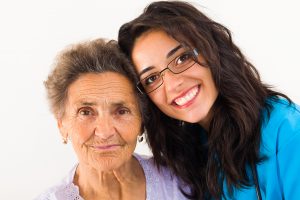 October is Positive Attitude month. Finding the history of this obscure national event is a little bit of a challenge, but whoever designated it certainly had their priorities in place. People have the choice to go through life with a positive attitude or a defeatist philosophy. Is it really a choice? Waking up happy with an attitude of gratitude is surely a boon to wandering through life looking for the next catastrophe. But, just as in the characters of Winnie The Pooh, there are those that live life as an Eeyore, filled with pessimism and gloom, and those who emulate Tigger, T—I—double G—er, and overflow with optimism and exuberance. So why is it that happiness is sometimes fleeting and sadness a formidable foe?
October is Positive Attitude month. Finding the history of this obscure national event is a little bit of a challenge, but whoever designated it certainly had their priorities in place. People have the choice to go through life with a positive attitude or a defeatist philosophy. Is it really a choice? Waking up happy with an attitude of gratitude is surely a boon to wandering through life looking for the next catastrophe. But, just as in the characters of Winnie The Pooh, there are those that live life as an Eeyore, filled with pessimism and gloom, and those who emulate Tigger, T—I—double G—er, and overflow with optimism and exuberance. So why is it that happiness is sometimes fleeting and sadness a formidable foe?

